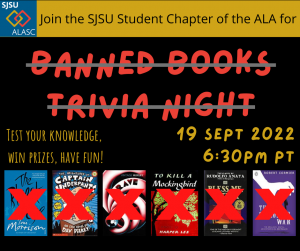by Amy Senn
Those of you working in libraries may have already attended a library conference. But for those of you who haven’t made it to one yet, I can’t recommend attending your first library conference highly enough. I recently had the opportunity to attend the Pacific Northwest Library Association (PNLA) annual conference in Vancouver, Washington on August 6 & 7, and wanted to offer some impressions for those of you who may be thinking about attending your first conference.
PNLA is a regional organization encompassing the states and provinces of Alaska, Idaho, Montana, and Washington, Alberta, and British Columbia. The conference is run by a committee consisting of librarians from around the region. This year’s theme was “Pushing the Boundaries.” According to figures given out during one of the conference lunches, approximately 200 people registered for this year’s conference.
The format included pre-conferences, an evening reception, four keynote meals (two breakfasts and two lunches), six breakout sessions spread across two days, a silent auction, door prize drawings, and other evening events. There were also several breaks scheduled into each day, during which many vendors could be found offering books, databases, and other merchandise. (There was also a sort of vendor scavenger hunt that allowed the contestant entry into a door prize drawing.) Each of the breakout sessions was an hour long. Presentation topics varied. Some were broadly applicable. Others were focused on a specific type of library. The keynotes included talks by authors Josh Hanagarne, Gregory Nokes, Jim Lynch, and Roland Smith.
The first breakout session I attended was a session on open access with the editors of PNLA Quarterly, Jan Zauha and Leila Sterman. They discussed some of the early history of publishing in general, and PNLA Quarterly in particular. They also talked about the journal’s move toward an open access, online only format, as well as some of the issues with the current state of scholarly publication. After lunch, I attended a session by Carl Cavanagh of the Greater Victoria Public Library. He discussed establishing a prison library at Vancouver Island Regional Correctional Centre with no budget. He also discussed a series of next steps for the program. The library plans to replace the prison’s corporate library card with individual inmate cards. They also intend to provide literature about the library in inmates’ exit packages.
My third breakout session of Thursday was about academic libraries and student retention, by Kellian Clink of Minnesota State University Mankato. Clink discussed the importance of the library’s role in advising (formal or informal), providing information about institutions that can help support students, (e.g. food pantries, free health clinics, etc.), and other aspects of outreach to at-risk student populations. Clink also handed out a list of sources for further reading.
The first Friday breakout I attended was on grant writing, given by Maura Walsh of the Washington State Library. Highlights included the importance of finding the right grant match, places to look for grants, some thoughts on grant application tracking forms, and tips on writing the budget. She also mentioned asking for advice on improving on unfunded grant applications.
The second Friday session I attended was about online learning trends, by Sara Robertson Seely of Portland Community College and Pamela Bailey of OCLC. The session wasn’t limited to discussion higher education, but instead covered people’s motivations for taking, and satisfaction with, all types of online education. It also discussed the numbers of people who use libraries for their online learning. It turns out these numbers are low, as many people still mentally equate libraries with books. Some possibilities to counteract these numbers included marketing the library as a place to get work done, providing responsive website design and online instruction, and embedding virtual reference in courses.
The last session I attended was on Virtual Reference in Oregon and Washington. It was a panel discussion two librarians from Washington and two from Oregon. They discussed Oregon and Washington’s collaborative online virtual reference programs. The presenters discussed how these programs work, differences between the states, and the importance of virtual reference.
The sessions I attended discussed pushing the boundaries of publishing, the communities libraries serve, and how those services are provided. The most important thing about the conference not related to content was how friendly and helpful people were. As an introvert, networking is always a challenge for me. Fortunately, I learned that not only will people tolerate a stranger’s presence at their meal table, some will also actively seek you out, offer career advice, or just chat! So if you’re feeling nervous about the possibility of attending a conference, don’t be! The environment is friendly, and it’s a good way to keep up with trends in the profession, even if you’re not big on networking.
 Amy Senn
Amy Senn
Amy Senn holds a Master of Science in Resource Management and is currently pursuing her MLIS at San Jose State University. She has worked as an archaeologist for over 8 years and hopes to eventually transition to a career in academic libraries. She currently lives in eastern Oregon.
